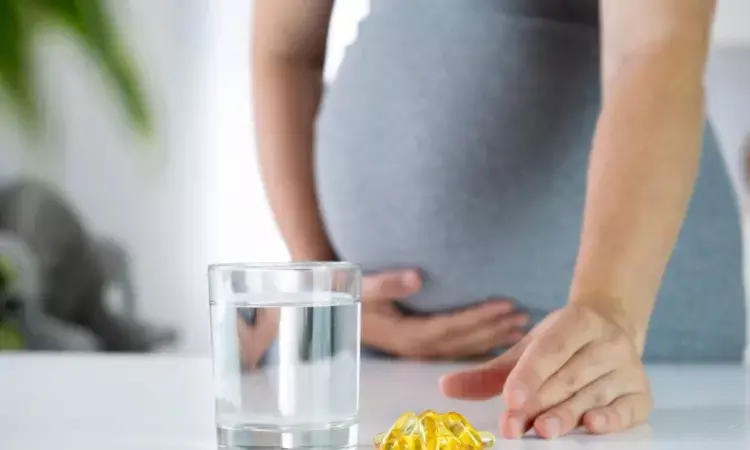- Home
- Medical news & Guidelines
- Anesthesiology
- Cardiology and CTVS
- Critical Care
- Dentistry
- Dermatology
- Diabetes and Endocrinology
- ENT
- Gastroenterology
- Medicine
- Nephrology
- Neurology
- Obstretics-Gynaecology
- Oncology
- Ophthalmology
- Orthopaedics
- Pediatrics-Neonatology
- Psychiatry
- Pulmonology
- Radiology
- Surgery
- Urology
- Laboratory Medicine
- Diet
- Nursing
- Paramedical
- Physiotherapy
- Health news
- Fact Check
- Bone Health Fact Check
- Brain Health Fact Check
- Cancer Related Fact Check
- Child Care Fact Check
- Dental and oral health fact check
- Diabetes and metabolic health fact check
- Diet and Nutrition Fact Check
- Eye and ENT Care Fact Check
- Fitness fact check
- Gut health fact check
- Heart health fact check
- Kidney health fact check
- Medical education fact check
- Men's health fact check
- Respiratory fact check
- Skin and hair care fact check
- Vaccine and Immunization fact check
- Women's health fact check
- AYUSH
- State News
- Andaman and Nicobar Islands
- Andhra Pradesh
- Arunachal Pradesh
- Assam
- Bihar
- Chandigarh
- Chattisgarh
- Dadra and Nagar Haveli
- Daman and Diu
- Delhi
- Goa
- Gujarat
- Haryana
- Himachal Pradesh
- Jammu & Kashmir
- Jharkhand
- Karnataka
- Kerala
- Ladakh
- Lakshadweep
- Madhya Pradesh
- Maharashtra
- Manipur
- Meghalaya
- Mizoram
- Nagaland
- Odisha
- Puducherry
- Punjab
- Rajasthan
- Sikkim
- Tamil Nadu
- Telangana
- Tripura
- Uttar Pradesh
- Uttrakhand
- West Bengal
- Medical Education
- Industry
Maternal intake of fish oil during pregnancy may increase risk of obesity in kids: Study

In the study, Dr. Vinding, and the team reported follow-up at the age of 10 years, including an assessment of metabolic health.
Denmark: Findings from a randomized clinical trial have suggested potential adverse health effects from n-3 (ω–3) long-chain polyunsaturated fatty acid (n–3 LCPUFA) supplementation during pregnancy. The study was published online in The American Journal of Clinical Nutrition in its April 2024 issue.
The researchers revealed that children of mothers receiving n–3 LCPUFA supplementation had an increased risk of being overweight and a tendency to increase fat percentage, increased body mass index (BMI) at age 10 years, and higher metabolic syndrome score.
There has been an increase in the prevalence of obesity and overweight in childhood and adolescence during the past 40 years, and environmental exposures during fetal life have long been suspected of playing a role. One exposure of interest is the intake of n–3 long-chained polyunsaturated fatty acids during pregnancy, mainly derived from fatty fish.
Rebecca K Vinding, University of Copenhagen, Copenhagen, Denmark, and colleagues had previously reported that children of mothers who received fish oil supplementation during pregnancy had higher BMI at 6 y of age as well as a concomitant increase in muscle-, fat, and bone mass, but no difference in fat percentage.
In the study, Dr. Vinding, and the team reported follow-up at the age of 10 years, including an assessment of metabolic health.
The study is a follow-up analysis of a randomized clinical trial conducted among 736 pregnant females and their offspring participating in the Copenhagen Prospective Studies on Asthma in Childhood Mother-child cohort.
The intervention was 2.4 g n–3 LCPUFA or control daily from pregnancy week 24 until 1 week after birth. Outcomes included body composition from Bioelectrical Impedance Analysis, anthropometric measurements, concentrations of triglycerides, blood pressure, glucose, cholesterol, and C-peptide from fasting blood samples, and a metabolic syndrome score was calculated.
Body composition and anthropometric measurements were prespecified secondary endpoints of the n–3 LCPUFA trial, and others were exploratory.
The study revealed the following findings:
- Children in the n–3 LCPUFA group had a higher mean BMI at age 10 years compared to the control group: 17.4 compared with 16.9 and a higher odds ratio of being overweight (odds ratio: 1.53). This corresponded to differences in body composition in terms of increased lean mass (0.49 kg), fat percent (0.74%), and fat mass (0.49 kg) compared to the control group.
- Children in the n–3 LCPUFA group had a higher metabolic syndrome score compared to the control (mean difference: 0.19).
In conclusion, the researchers revealed that children of mothers who received n–3 LCPUFA supplementation during pregnancy showed an increased risk of being overweight, increased BMI at age 10, and a tendency to display both an increased fat percentage and a higher metabolic syndrome score.
"These findings suggest potential adverse health effects from n–3 LCPUFA supplementation during pregnancy and need to be replicated in future independent studies," the researchers wrote.
Reference:
Vinding, R. K., Sevelsted, A., Horner, D., Vahman, N., Lauritzen, L., Hagen, C. P., Chawes, B., Stokholm, J., & Bønnelykke, K. (2024). Fish oil supplementation during pregnancy, anthropometrics, and metabolic health at age ten: A randomized clinical trial. The American Journal of Clinical Nutrition, 119(4), 960-968. https://doi.org/10.1016/j.ajcnut.2023.12.015
Dr Kamal Kant Kohli-MBBS, DTCD- a chest specialist with more than 30 years of practice and a flair for writing clinical articles, Dr Kamal Kant Kohli joined Medical Dialogues as a Chief Editor of Medical News. Besides writing articles, as an editor, he proofreads and verifies all the medical content published on Medical Dialogues including those coming from journals, studies,medical conferences,guidelines etc. Email: drkohli@medicaldialogues.in. Contact no. 011-43720751


